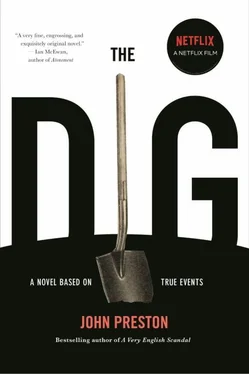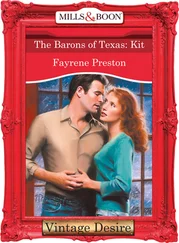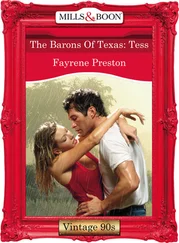And so I carried on aimlessly wandering. Up past the Bull Hotel and St Mary’s Church, then veering down the side streets to the right. When I reached the common on the edge of town, I doubled back, this time taking a different road. I wasn’t paying much attention to where I was going — my thoughts were still tying themselves up in knots.
After a while, though, I made myself concentrate on my surroundings. I was walking past a terrace of low, brick-built houses that fronted directly onto the street. All the houses were blotched with white, dusty patches — the builder must have put too much lime in the bricks.
At the end of the terrace was a chapel. This was also made of brick, but it was a deeper, more ruddy color than the houses. The chapel was set back from the road. A strip of tarmac led through rows of gravestones to a set of double doors. One of these doors was open. Lights were on inside. A service was in progress.
Without thinking twice — hardly thinking once, really — I walked up the path and in through the door. Once inside, I saw that the chapel was more crowded than I’d expected. A few people turned round to see who this late arrival was, although not many. Most of them were staring at a small stage at the far end.
Mounted on the back wall was a portrait of the Savior. On one side of it were the words “Give Out Light” written in large gold letters, on the other side, “Give Out Love.” In front of “Give Out Light” was a frosted white bulb mounted on top of a barley-twist pole.
A woman was standing on the stage. Her gray hair was cut into a bob and she wore a long powder-blue dress. I found myself a seat near the back and close to the wall. There was a small shelf beside me with a decanter of water and two glasses on it.
Only as I sat down did I become aware that at least one person — and possibly more — was crying. Sobbing quietly to themselves. I should have left there and then, of course. The trouble was I would have risked making a spectacle of myself, and so I stayed put.
The woman in blue stood perfectly still. In front of her was a small lectern. One of her arms was held in front of her, bent at the elbow. She had the back of her hand turned towards her, as if she was reading the time. Draped over her wrist was what appeared to be a necklace, or a length of chain.
She was studying this intently.
“Ronald,” she said after a while. “Does anyone know a Ronald?”
There was silence, but a hopeful sort of silence, as if everybody was waiting for someone to fill it. The silence was broken by a dog barking — someone in the congregation must have brought one in. Then a man sitting two rows in front of me stuck his hand up.
“My father was called Donald,” he said.
“I didn’t say Donald,” said the woman sternly. “I said Ronald.”
The man lowered his hand.
“Ronald?” she said again, looking round. Still there were no takers. The woman didn’t appear to be in the least bothered. “I’ll try again,” she said, and fell to further contemplation of the chain.
Several more minutes went by. “Eric,” she said at last.
A few more hands went up now.
“Eric is a lovely-looking boy,” the woman said. “In his late teens, or early twenties, I should say.”
The hands remained in the air. White fingers straining upwards. “Where are you from, Eric?” asked the woman, leaning her head on one side.
The answer was not long in coming. “Eric says he is from Bucklesham.”
There were groans at this. All but two of the hands went down. “Eric passed over in France,” said the woman, “but he’s left a father behind him. And a mother too? No, not a mother. Sorry. She’s already with him. What’s the name of your father, Eric?” Again her head dipped down on one side. “Eric says that his father’s name is Doug.”
I heard a gasp. One of the two hands went down. The other stayed up for a few moments longer. Then this too was lowered. It belonged to a man who was sitting by himself near the front. Although it wasn’t in the least cold in the church — it was quite close, in fact — he wore an overcoat. He also had a muffler wound round his neck.
“It’s you, dear, isn’t it?” said the woman in blue.
The man nodded. Then he said something I couldn’t hear. The woman came down a set of steps from the stage and addressed him directly. “Eric is fine, you know. They both are. Eric and Mum. Eric says he loves you very much and that you mustn’t worry about either of them.”
“I hope I will be able to join them soon,” said the man in a matter-of-fact voice.
“You’ll go when you’re good and ready, dear,” said the woman. “And not before. The last thing they want is for anyone to go over before their time. Is that clear?”
Again the man nodded. “Is there anything else you can tell me?”
“Let me see… Eric is such a handsome boy. I can see he has your eyes. Such an honest face too. But he’s got a scar on one of his hands. All the way up his arm. Is that from the war?”
“No. It’s from when he was a boy. He fell onto some broken glass.”
“Yes, I thought it didn’t look recent. You know what your Eric is saying to me? He’s saying, ‘I wish he’d laugh more.’ Because you used to laugh a lot, didn’t you?”
The man made no reply to this.
“See if you can do what Eric says, dear. Try to laugh a bit more. Because it’s not all doom and gloom out there, you know. Now then, shall we see who else is trying to get through?”
Next she got a Bernard, swiftly followed by an Eileen. “I feel a lot of fluid here,” said the woman clutching her stomach. “Was that her problem? Tummy troubles?”
So it went on with this chorus of weeping rising and falling, along with occasional interruptions from the dog. “Can anyone take a Brian for me? A tall gentleman. Something in his buttonhole. I think it’s a carnation. They won’t come if someone won’t accept them, you know.”
A woman’s hand duly went up.
“You, dear? I asked Brian if he had a message and he said no. He doesn’t have anything particular to say. He just wanted to say hello.”
“Yes,” said the woman. “He never was a talkative one.”
By now I felt that I had no business here, sitting in on other people’s grief. I got to my feet, intending to slip out through the still-open door. But I’d only taken a couple of steps when I became aware that something had changed. It must have been the quality of the silence.
I looked up. The woman in blue was again descending from the stage. Now she was walking down the aisle in a purposeful sort of way. She had a somewhat rolling gait. I watched her come closer, not sure what to do.
When she reached me, she touched my shoulder. “Are you familiar with an Emily?” she asked.
“No,” I said, relieved. “I don’t believe I am.”
“A friend of your mother’s? Possibly your grandmother’s? A woman of about fifty years of age? Very light on her feet and a nice sense of humor?”
For the sake of being polite, I pretended to think about it. However, the moment couldn’t be put off for long. “It means nothing, I’m afraid.”
“Oh.”
She tapped her fingertips against her cheek as if she was ticking herself off. “I see green fields. Yes… green fields which you left for a more important position. Now does that make any sense?”
Everyone had turned to face me. They had twisted round on their chairs, their faces large and curious.
“Possibly,” I said.
“And sand. Sand and green fields. Tell me, is somebody holding you up in your business?”
I didn’t say anything.
“Yes,” she said. “I thought so.”
She touched me again. This time her eyelids fluttered as if her eyes had rolled back in her head. When she next spoke she did so with absolute conviction. “My message to you is plain: you must assert yourself. Do you understand me?”
Читать дальше












